Cruising Through Kerala’s Backwaters: A Traveler’s Dream
Kerala, often referred to as "God's Own Country," is a lush and enchanting state in southern India known for its diverse landscapes, rich culture, and serene backwaters. Among the many wonders this region offers, one experience stands out as a traveler's dream: cruising through Kerala's backwaters. This timeless journey allows visitors to immerse themselves in the tranquility of interconnected rivers, lakes, and lagoons while discovering the authentic beauty of rural Kerala.
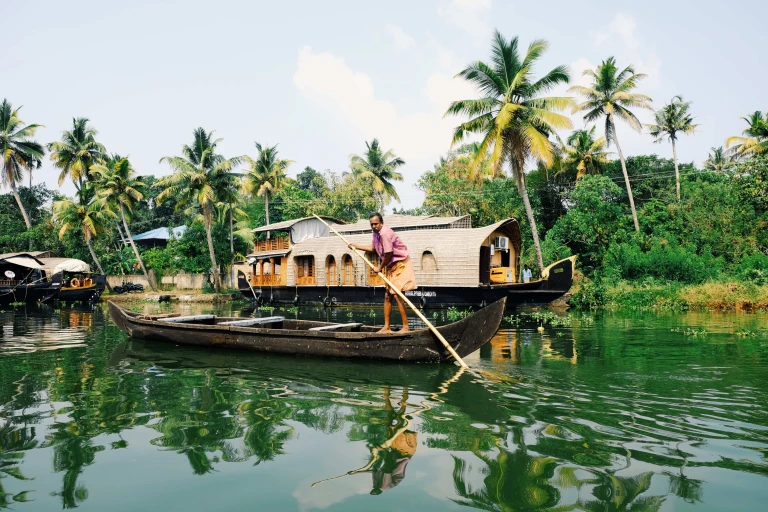
Geography and Formation of the Backwaters
To truly appreciate the beauty of Kerala's backwaters, it's essential to understand the geography that gives rise to this unique landscape. Kerala is a coastal state, and its backwaters are a product of nature's artistry. Stretching along the Arabian Sea's coastline, these backwaters are formed by a network of rivers, lakes, and lagoons. The Arabian Sea kisses the shores of Kerala, creating a delicate balance between land and water that has given birth to this spectacular aquatic wonderland.
Kerala's backwaters consist of five large lakes linked by canals, both man-made and natural. These lakes, namely Vembanad, Punnamada, Ashtamudi, Kayamkulam, and Vellayani, are interconnected, forming an intricate labyrinth of waterways that stretch for nearly 600 kilometers. The interconnectedness of these water bodies has been the lifeblood of the region for centuries.
Houseboats: The Floating Paradises
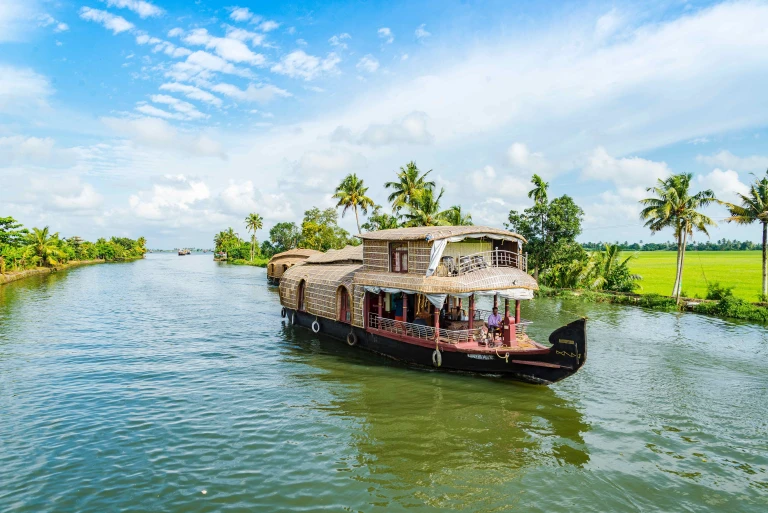
The Origin of Houseboats
To truly appreciate the backwaters of Kerala, one must become acquainted with the history of its iconic houseboats. These floating paradises, known as Kettuvallams, have a rich and fascinating history that dates back over a thousand years.
Originally, Kettuvallams were used as cargo boats to transport rice and spices from the interior villages to the coastal towns. They were constructed entirely without nails, using an intricate system of tying together wooden planks with coir ropes. This unique construction technique earned them their name, which translates to "tied boats."
Over the years, as road and rail networks improved, the role of Kettuvallams in cargo transport diminished. However, their transformation into houseboats allowed them to remain a vital part of Kerala's culture and economy. Today, these houseboats have evolved from functional vessels to floating works of art and are at the heart of the Kerala backwater experience.
Types of Houseboats
When it comes to houseboats in Kerala, you're spoiled for choice. There is a wide variety of houseboats to choose from, ranging from basic to luxury, each offering its unique experience.
Deluxe Houseboats: These houseboats offer a comfortable and affordable experience. They typically have well-appointed bedrooms, an attached bathroom, and a dining area. Deluxe houseboats provide an excellent way to experience the backwaters without breaking the bank.
Premium Houseboats: If you're looking for a bit more luxury, premium houseboats are the way to go. They come with air-conditioned bedrooms, plush furnishings, and even Jacuzzis on some. A premium houseboat is ideal for those seeking a more indulgent experience.
Luxury Houseboats: For the ultimate in opulence, luxury houseboats are the top choice. These floating palaces feature spacious living areas, elegant decor, private balconies, and dedicated staff to cater to your every need. A stay in a luxury houseboat is a once-in-a-lifetime experience.
Shikara Boats: Shikara boats are smaller, traditional boats often used for short trips or romantic getaways. They are perfect for couples looking for an intimate and quiet cruise through the backwaters.
Choosing the right houseboat experience largely depends on your budget and preferences. Whether you opt for a simple, intimate experience or a luxurious escapade, one thing is certain: your journey through the Kerala backwaters will be nothing short of magical.
Cruising the Backwaters: A Day in the Life
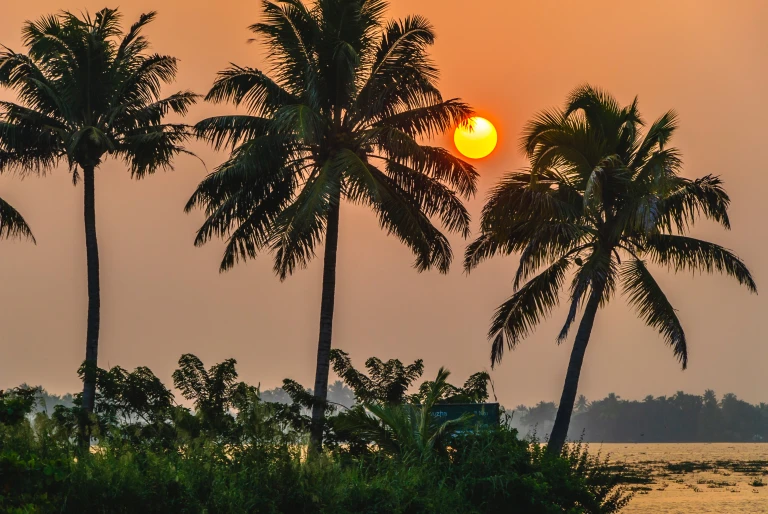
Embarking on Your Houseboat Journey
As you prepare to embark on your Kerala backwater adventure, there are a few things you should keep in mind to ensure a smooth and enjoyable experience.
Choosing Your Starting Point: Kerala offers several starting points for your backwater journey. Alleppey, often referred to as the "Venice of the East," is one of the most popular. Other starting points include Kumarakom, Kottayam, and Kollam. Consider your itinerary and preferences when choosing your starting point.
Selecting the Right Season: Kerala's backwaters are a year-round destination, but the best time to visit is during the dry season, which runs from October to February. During these months, the weather is pleasant, and the water levels are ideal for cruising.
Choosing Your Houseboat: As mentioned earlier, there is a range of houseboats to choose from. Select one that fits your budget, group size, and desired level of luxury.
Planning Your Itinerary: Work with your houseboat operator to plan your itinerary. Some houseboats offer day trips, while others provide overnight stays. Consider what you want to experience and how long you'd like to spend on the backwaters.
Setting Sail
Your journey begins as you step onto your chosen houseboat. The typical houseboat crew consists of a captain, a chef, and an assistant. They will warmly welcome you aboard and ensure your every need is met throughout the voyage.
As you glide away from the shore, you'll be immediately struck by the tranquility of the backwaters. The only sounds you'll hear are the gentle lapping of water against the boat and the occasional chirping of birds. It's a stark contrast to the bustling streets of India's cities, and it's precisely this serenity that makes the backwaters so special.
Exploring the Backwaters
The backwaters are a vast network of waterways, and your journey will take you through a variety of landscapes. You'll cruise past lush paddy fields, palm-fringed canals, and sleepy villages. The views are ever-changing, and around every bend, there's a new surprise waiting.
One of the highlights of your journey will undoubtedly be the chance to witness daily life along the backwaters. You'll see locals going about their routines, whether it's fishing in the canals, washing clothes on the riverbanks, or children playing by the water's edge. The backwaters are not just a tourist attraction; they are a living, breathing part of Kerala's culture.
Stopping Along the Way
Your houseboat journey may include stops at various points of interest along the backwaters. These stops provide an opportunity to explore the villages, interact with the locals, and soak in the culture.
Some popular stops include:
Pathiramanal Island: Known as the "Sands of Midnight," this small island is a haven for birdwatchers, with numerous species of migratory birds making it their temporary home.
Vembanad Kayal: The largest lake in the backwaters, Vembanad is a bustling waterway where you can witness fishermen at work and explore the intricate network of canals.
Kuttanad: Often referred to as the "Rice Bowl of Kerala," this region is known for its vast paddy fields and is an excellent place to learn about traditional farming practices.
During your stops, you'll have the opportunity to interact with the locals, learn about their way of life, and perhaps even participate in some of their daily activities. It's a chance to gain insight into the rich culture of Kerala and forge meaningful connections with its people.
Sunset on the Backwaters
As the day draws to a close, one of the most magical moments of your journey awaits: the sunset on the backwaters. There's something truly enchanting about watching the sun dip below the horizon, casting a warm, golden glow over the tranquil waters.
Find a comfortable spot on your houseboat—a cozy corner, the deck, or even your bedroom's window—and prepare to be captivated. As the sky transforms through shades of orange, pink, and purple, you'll understand why Kerala's backwaters are often described as paradise on earth.
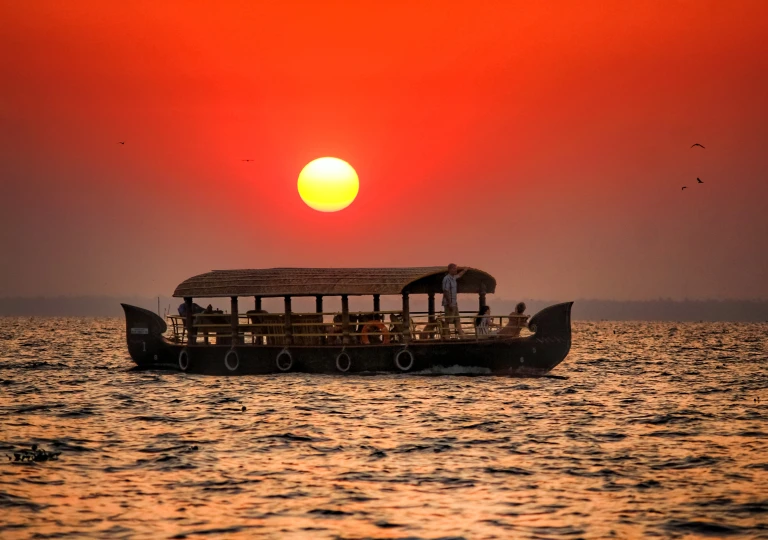
A Night on the Backwaters
An Evening Under the Stars
As darkness descends over the backwaters, your houseboat transforms into a cozy cocoon of comfort. The crew will serve you a sumptuous dinner, often on the deck under a starlit sky. There's something incredibly romantic about dining by the water, with the soft glow of lanterns reflecting off the surface.
After your meal, you can choose to continue stargazing or retire to your bedroom, where the gentle rocking of the boat will lull you to sleep. The quietude of the backwaters ensures a peaceful night's rest, and you'll wake up refreshed and ready to continue your journey.
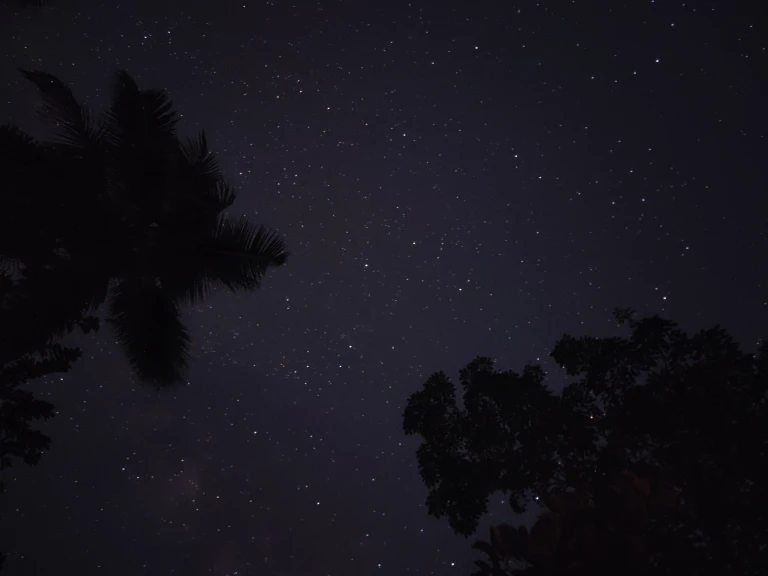
Dawn in the Backwaters
Awakening to Serenity
Dawn in the backwaters is a magical time. As the first rays of sunlight kiss the water's surface, the backwaters come alive with a soft, golden glow. It's a time of quiet reflection and awe as you witness the world awakening around you.
The backwaters are at their most serene in the early morning. The air is cool and crisp, and the waters are still, save for the occasional fish breaking the surface. It's an excellent time for birdwatching, as you're likely to spot various species going about their morning routines.
Morning Activities
Many houseboat journeys offer the opportunity to engage in morning activities. You can opt for a guided village walk, where you'll explore the local way of life and perhaps visit a nearby market. Or, if you're feeling adventurous, you can try your hand at traditional fishing with the locals.
Of course, you're also welcome to simply relax on the deck, take in the breathtaking views, and savor a cup of freshly brewed Kerala tea. There's no rush in the backwaters; time moves at its own pace.
The People of the Backwaters
The Locals and Their Way of Life
One of the most captivating aspects of the Kerala backwaters is the opportunity to interact with the locals. The people of the backwaters are warm, welcoming, and eager to share their way of life with visitors.
As you cruise through the canals and villages, you'll have the chance to meet fishermen, farmers, and artisans who call the backwaters home. They'll be more than happy to tell you about their daily routines, traditions, and the challenges they face living in this unique environment.
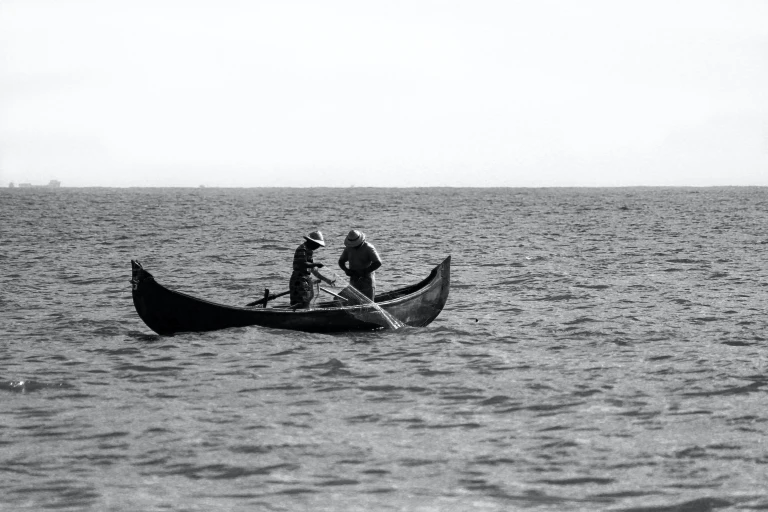
The Artisans of Alleppey
Alleppey, in particular, is known for its skilled artisans who craft traditional coir products. Coir, derived from coconut husks, is used to create a wide range of items, including ropes, mats, and even intricate handicrafts.
Visiting a coir village in Alleppey provides a fascinating glimpse into this age-old craft. You can watch artisans at work, see the various stages of coir processing, and even try your hand at weaving a coir mat.
The Fisherfolk
The backwaters are teeming with life, and fishing is a way of life for many communities. The sight of fishermen casting their nets into the water is a common and captivating sight along the canals.
You can join them for a lesson in traditional fishing techniques, learning how to throw a net or bait a hook. It's a hands-on experience that offers a deeper understanding of the challenges and rewards of life in the backwaters.
Village Life
The backwater villages are a world unto themselves. Life here moves at a different pace, and the communities are tightly knit. As you stroll through the villages, you'll see children playing by the water, women tending to their homes, and men engaged in various tasks, from boat building to farming.
Many villages have small markets where you can shop for locally made handicrafts, spices, and other souvenirs. It's also an excellent opportunity to engage with the locals, ask questions, and gain insight into their lives.
The Backwaters Beyond the Houseboat
Exploring the Waterways
While your houseboat journey is undoubtedly the highlight of your backwater experience, there's more to discover beyond your floating paradise. Many operators offer additional activities that allow you to explore the waterways and the surrounding areas.
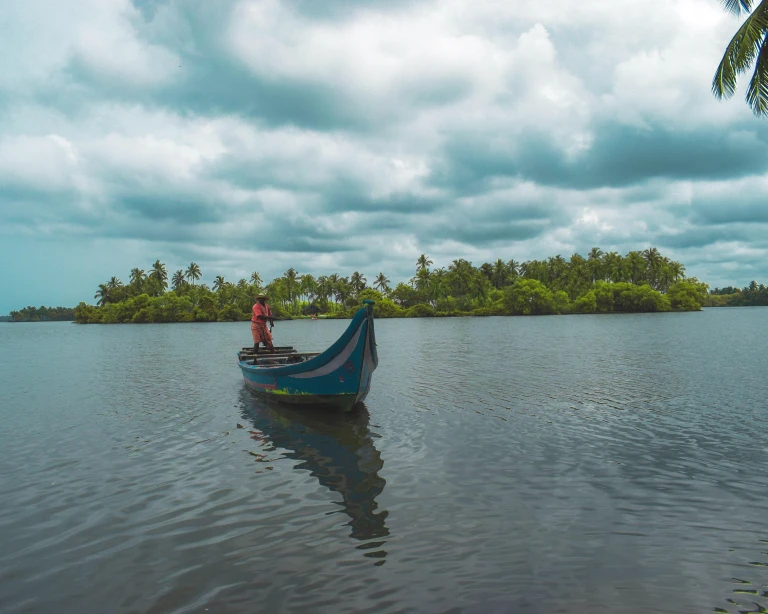
Canoe Rides: For a more intimate exploration, consider taking a traditional canoe ride through the narrower canals and waterways. These smaller boats can access areas that are off-limits to larger houseboats, providing a unique perspective of the backwaters.
Birdwatching: The backwaters are a haven for birdwatchers, and you'll have the opportunity to spot a wide variety of avian species. Keep your binoculars handy, and don't forget to look up in the trees and along the riverbanks for feathered friends.
Village Visits: If you're curious about life in the backwater villages, arrange a visit to one of them. You can meet the locals, learn about their traditions, and even participate in activities like coir weaving or cooking traditional Kerala dishes.
Ayurveda and Wellness
Kerala is renowned for its Ayurvedic traditions, and the backwaters offer an excellent backdrop for rejuvenation and wellness. Many houseboat operators offer Ayurvedic massages and treatments onboard, allowing you to relax and unwind as you sail through the serene waters.
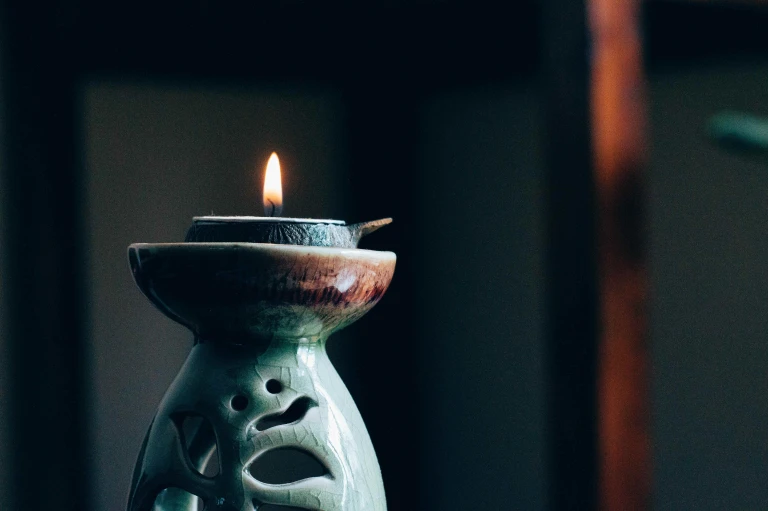
The Culinary Delights of Kerala
Flavors of the Backwaters
No journey through Kerala's backwaters is complete without indulging in its culinary delights. Kerala cuisine is a feast for the senses, with a rich tapestry of flavors and textures that reflect the region's diverse cultural influences.
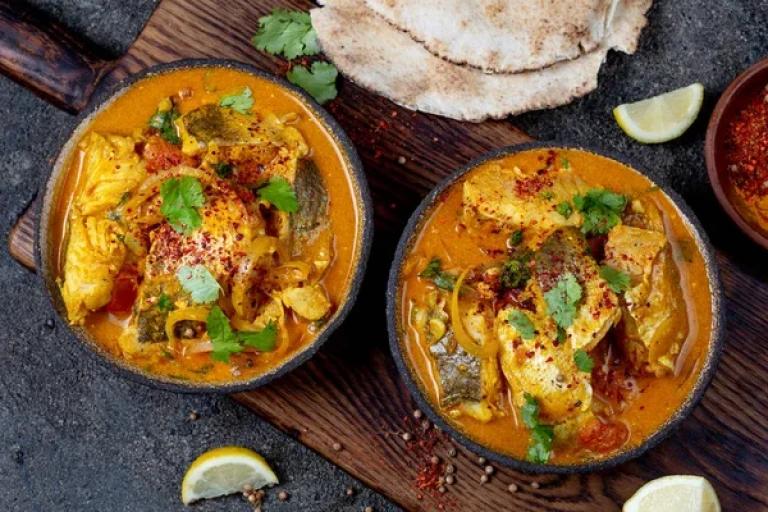
Traditional Kerala Meals: Onboard your houseboat, you'll have the opportunity to savor traditional Keralan meals served on a banana leaf. These feasts typically include rice, sambar (a lentil-based vegetable stew), rasam (a tangy soup), various vegetable curries, and a variety of chutneys and pickles.
Fresh Seafood: Given Kerala's extensive coastline, it's no surprise that seafood features prominently in the cuisine. You can expect to enjoy dishes like Karimeen Pollichathu (grilled fish wrapped in banana leaves), Meen Curry (fish curry), and Chemmeen Ularthiyathu (spicy prawns).
Karimeen Pollichathu: A delicacy made from marinated fish wrapped in banana leaves and grilled to perfection.
Avial: A mixed vegetable dish cooked with coconut and yogurt, a quintessential Kerala dish.
Kerala Sadya: A traditional feast served on a banana leaf, featuring an array of dishes, including rice, sambar, rasam, and various vegetable curries.
Appam with Stew: Soft and fluffy rice pancakes served with a creamy vegetable or chicken stew.
Coconut Everything: Coconut is a staple in Keralan cooking, and you'll find it used in various forms, from grated coconut to coconut milk and oil. The use of coconut gives Kerala dishes their distinctive creamy texture and sweet, nutty flavor.
Kerala Sweets: End your meals with a taste of Kerala's sweet treats. Payasam, a creamy rice pudding flavored with cardamom and saffron, is a beloved dessert. Unniappam, deep-fried rice cakes, and Kerala halwa are also popular choices.
Sustainable Tourism in the Backwaters
Preserving the Paradise
As more travelers discover the beauty of Kerala's backwaters, there's a growing awareness of the need for sustainable tourism practices. The fragile ecosystem of the backwaters must be protected to ensure its continued beauty and vitality.
Many houseboat operators and local communities are taking steps to minimize their impact on the environment. This includes responsible waste disposal, eco-friendly cleaning practices, and efforts to reduce pollution in the backwaters.
Responsible Travel
As a responsible traveler, there are also steps you can take to minimize your impact on the backwaters. These include:
Choose eco-friendly operators: Look for houseboat operators who have a commitment to sustainable tourism.
Respect local culture: When visiting villages, be mindful of local customs and traditions. Always ask for permission before taking photos of people.
Minimize waste: Carry reusable water bottles and avoid single-use plastics. Dispose of your waste properly.
Support local communities: Purchase souvenirs and products from local artisans, and dine at local restaurants to support the local economy.
By embracing sustainable and responsible travel practices, you can help preserve the beauty of Kerala's backwaters for future generations to enjoy.
As you reflect on your time in Kerala, you'll understand why this region has earned the title of "God's Own Country." The backwaters are not just a traveler's dream; they are a testament to the exquisite beauty and cultural richness that make Kerala a true paradise on earth. So, when you're ready for your next adventure, consider embarking on a journey through Kerala's backwaters. It's a dream waiting to be realized—a voyage that will stay with you long after you've left the tranquil waters behind. Kerala's backwaters are calling, and they promise an experience you'll cherish forever.
Read Top 10 Places to Visit in Kerala in 2023 to find the best picks in God's own country!
Published at
About Author
Manya Shastry
Subscribe our Newsletter
Get our weekly tips and travel news!
Related Posts
10 amazing hacks for comfortable train journeys in India
Make your Indian train journey comfortable with these 10 hacks: choose the right class, pack essentials, stay hydrated, wear comfy clothing, charge devices, bring entertainment, prioritize safety, book lower berths, use travel apps, and socialize.
10 Backpacking Destinations in India that you must check out in 2024
In 2024, explore India's diverse beauty with these 10 must-visit backpacking destinations, offering mountains, beaches, and cultural gems for every traveler.
10 Beach Wedding Destinations in India for Magical Memories
A beach wedding in India is a dream come true for many couples, with its picturesque backdrop of golden sands, azure waters, and stunning sunsets. From the shores of Goa to the beaches of Kerala, this blog has the 10 best wedding locations for you!
10 Best Flea Markets in India for souvenirs and more
Embark on a shopping adventure in India with our guide to the 10 best flea markets, from the vibrant Dilli Haat to Goa's bohemian Anjuna market. Unearth unique souvenirs and experience the cultural richness of each location.
10 Best Trekking Destinations in India for October and November
The months of October and November provide the perfect weather conditions for outdoor enthusiasts to embark on exhilarating treks.
Latest Posts
You don't Need FASTag anymore? Everything you need to know!
No more FASTag from May 1st?
10 Dreamy Experiences for Couples in Kashmir
Fancy some romantic experiences in Kashmir?
How much will a trip to Indonesia cost from India? Travel Budget Guide
Need to budget a tropical getaway from India to Indonesia?
Indian Traveler's 7 Day Itinerary for Island Hopping in Indonesia
Your perfect Indonesian island getaway guide is here!
Best 4-Day Itinerary for Kashmir, India
Ready to fall in love with Kashmir in just four days?

